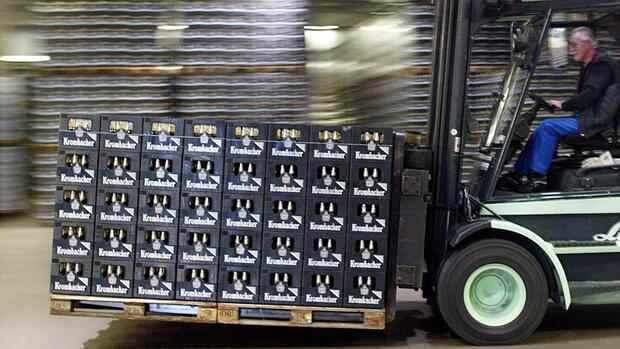Prices have fallen compared to the previous month.
(Photo: AP)
Berlin German wholesale prices fell in July for the first time in more than a year and a half. Compared to the previous month, they fell by 0.4 percent, as the Federal Statistical Office announced on Monday. That was the first drop since October 2020.
This was ensured, for example, by the development of grain, raw tobacco, seeds and animal feed, which were 8.4 percent cheaper for seasonal reasons. Ores, metals and semi-finished metals were 4.9 percent cheaper, as were old materials and residues (-2.7 percent).
Compared to the same month last year, the price increase in German wholesale fell for the third month in a row. Prices rose in July by an average of 19.5 percent compared to the same month last year.
At 23.8 percent, April saw the largest increase since calculations began in 1962. Since then, inflationary pressure in this area has eased slightly. The Russian war against Ukraine has made raw materials, energy sources and food in particular significantly more expensive.
Top jobs of the day
Find the best jobs now and
be notified by email.
Wholesale prices for petroleum products rose by 53.8 percent in July compared to the same month last year. There were also particularly strong increases in solid fuels (+92.9 percent) and chemical products (+41.3 percent). Milk, dairy products, eggs, edible oils and dietary fats (+38.7 percent) as well as cereals, raw tobacco, seeds and animal feed (+33.4 percent) were also significantly more expensive in wholesale.
Fuel discount and 9-euro ticket relieve the burden on consumers
The development is considered an indicator of future inflationary tendencies. Because wholesalers act as a link between manufacturers and end customers, higher costs ultimately end up at least partly with the consumers. Consumer prices rose 7.5 percent in July and 7.6 percent in June after expensive energy pushed inflation up 7.9 percent in May to a nearly 50-year high.
The state fuel discount and the 9-euro ticket in local transport have recently provided some relief, but economists believe that double-digit inflation rates are possible in autumn due to the sharp rise in gas prices. The amount of the gas surcharge is to be determined this Monday.
More: Risk of recession for the German economy remains acute
